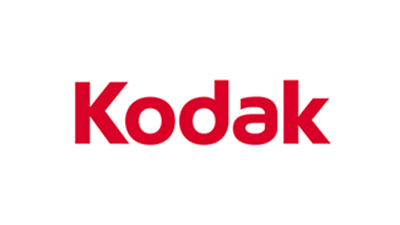
-
Report ID 138088 -
Published Date June 2023 -
Delivery Format PDF/PPT/Word -
Editor's Rating
-
Report Details
Market Size
The Generative AI in Travel Market is set to witness substantial growth during the forecast period from 2023 to 2032, with a projected market worth of approximately USD 2,919.5 million by 2032. This growth is expected to be driven by a compound annual growth rate (CAGR) of 18.2%, starting from a market size of USD 571.9 million in 2022. The market is being driven by the increasing adoption of AI-powered solutions by travel companies to improve the customer experience, the rising demand for personalized travel experiences, and the growing popularity of online travel agencies.
Key Takeaways from Primary Research
The key takeaways from primary research conducted for this report include:
- The travel industry is increasingly adopting AI-powered solutions to improve the customer experience.
- The demand for personalized travel experiences is rising.
- Online travel agencies are becoming increasingly popular.
Note – The number might vary in the actual report
Prime determinants of growth
The prime determinants of growth in the global generative AI in travel market include:
- Increasing adoption of AI-powered solutions by travel companies
- Rising demand for personalized travel experiences
- Growing popularity of online travel agencies
Factors Affecting the Growth
The factors affecting the growth of the global generative AI in travel market include:
- The high cost of implementing AI-powered solutions
- The lack of skilled professionals to develop and implement AI-powered solutions
- The regulatory challenges associated with the use of AI in the travel industry
Market Demand and Trend
The market demand for generative AI in travel is driven by the following trends:
- The rising demand for personalized travel experiences
- The growing popularity of online travel agencies
- The increasing adoption of AI-powered solutions by travel companies
Regional Landscape
The global generative AI in travel market is segmented by region into North America, Europe, Asia Pacific, Latin America, and Middle East & Africa. North America is the leading market for generative AI in travel, followed by Europe and Asia Pacific. The growth of the market in North America is attributed to the increasing adoption of AI-powered solutions by travel companies, the rising demand for personalized travel experiences, and the growing popularity of online travel agencies.
The growth of the market in Europe is attributed to the increasing adoption of AI-powered solutions by travel companies, the rising demand for personalized travel experiences, and the growing popularity of online travel agencies. The growth of the market in Asia Pacific is attributed to the rising disposable incomes of consumers, increasing urbanization, and the growing popularity of online travel agencies.
Latest Strategies
The key players in the global generative AI in travel market are adopting the following strategies to gain a competitive edge:
- Acquisitions and partnerships
- Product development and innovation
- Expansion into new markets
Key Benefits for Stakeholders
The key benefits for stakeholders in the global generative AI in travel market include:
- Improved customer experience
- Increased revenue
- Reduced costs
- Increased efficiency
Technological Advancements
The technological advancements that are driving the growth of the global generative AI in travel market include:
- The development of new AI algorithms
- The increasing availability of data
- The rising computing power
Market Dynamics
Drivers
The key drivers of the global generative AI in travel market include:
- Increasing demand for personalized travel experiences
- Rising adoption of online travel agencies
- Growing popularity of AI-powered solutions
Restraints
The key restraints of the global generative AI in travel market include:
- High cost of implementation
- Lack of skilled professionals
- Regulatory challenges
Opportunities
The key opportunities of the global generative AI in travel market include:
- Growth of the online travel market
- Increasing demand for personalized travel experiences
- Development of new AI algorithms
Challenges
The key challenges of the global generative AI in travel market include:
- High cost of implementation
- Lack of skilled professionals
- Regulatory challenges
The Top 7 Countries that Influence the Global Market are:
- United States
- Canada
- United Kingdom
- Germany
- France
- China
- India
Key Players
- Amadeus IT Group
- Google LLC
- Airbnb Inc.
- Expedia Group Inc.
- Skyscanner Ltd.
- Kayak Software Corporation
- Sabre Corporation
- Booking Holding Inc.
- Other Key Players
Recent Development
- 2022: In 2022, Amadeus IT Group launched a new AI-powered tool that helps travel agents create personalized travel itineraries for their clients. The tool uses data from Amadeus’s travel database to generate itineraries that are tailored to the specific interests and needs of each client.
- 2021: In 2021, Google launched a new AI-powered feature called “Itinerary Planner” for its Google Maps app. The feature uses machine learning to help users plan their travel itineraries by suggesting places to visit, finding the best deals on flights and hotels, and creating custom maps.
- 2020: In 2020, Airbnb launched a new AI-powered tool called “Trip Planner” that helps users plan their travel trips. The tool uses data from Airbnb’s travel database to generate personalized trip itineraries that include recommendations for places to stay, things to do, and restaurants to eat at.
Market Segmentation
Based on Type of Travel
- Air Travel
- Rail Travel
- Cruise Travel
- Other Types of Travels
Based on Service Type
- Transportation Services
- Accommodation Services
- Other Service Types
Based on Deployment Model
- On-Premise based Model
- Cloud-Based Model
- Hybrid Model
Applications
- Marketing Content
- Customer Service
- Virtual Travel Experiences
- Travel Planning Tools
- Travel Safety
Key Regions
- North America
- The US
- Canada
- Mexico
- Western Europe
- Germany
- France
- The UK
- Spain
- Italy
- Portugal
- Ireland
- Austria
- Switzerland
- Benelux
- Nordic
- Rest of Western Europe
- Eastern Europe
- Russia
- Poland
- The Czech Republic
- Greece
- Rest of Eastern Europe
- APAC
- China
- Japan
- South Korea
- India
- Australia & New Zealand
- Indonesia
- Malaysia
- Philippines
- Singapore
- Thailand
- Vietnam
- Rest of APAC
- Latin America
- Brazil
- Colombia
- Chile
- Argentina
- Costa Rica
- Rest of Latin America
- Middle East & Africa
- Algeria
- Egypt
- Israel
- Kuwait
- Nigeria
- Saudi Arabia
- South Africa
- Turkey
- United Arab Emirates
- Rest of MEA
Future Trends in the Market
The key trends that are expected to shape the future of the global generative AI in travel market include:
- Increasing adoption of AI-powered solutions by travel companies
- Rising demand for personalized travel experiences
- Growing popularity of online travel agencies
FAQs
1. What is generative AI in the travel market?
Generative AI is a type of artificial intelligence that can create new and original content. In the travel market, generative AI can be used to create personalized travel experiences, generate marketing content, and improve customer service.
2. How is generative AI used in the travel market?
Generative AI can be used in a variety of ways in the travel market, including:
- Personalized travel experiences: Generative AI can be used to create personalized travel experiences for customers by analyzing their preferences and interests. For example, generative AI can be used to recommend hotels, flights, and activities that are likely to be of interest to a particular customer.
- Marketing content: Generative AI can be used to create marketing content that is tailored to a specific audience. For example, generative AI can be used to create travel blog posts, social media posts, and email marketing campaigns that are likely to resonate with a particular target audience.
- Customer service: Generative AI can be used to improve customer service by providing customers with quick and accurate answers to their questions. For example, generative AI can be used to create chatbots that can answer customer questions about travel arrangements, destinations, and other travel-related topics.
3. What are the benefits of using generative AI in the travel market?
There are a number of benefits to using generative AI in the travel market, including:
- Improved customer experience: Generative AI can help to improve the customer experience by providing personalized travel experiences, creating engaging marketing content, and providing quick and accurate customer service.
- Increased revenue: Generative AI can help to increase revenue by generating more leads, converting more leads into customers, and increasing customer spending.
- Reduced costs: Generative AI can help to reduce costs by automating tasks, improving efficiency, and reducing the need for human resources.
4. What are the challenges of using generative AI in the travel market?
There are a number of challenges to using generative AI in the travel market, including:
- High cost: The cost of developing and implementing generative AI solutions can be high.
- Lack of skilled professionals: There is a lack of skilled professionals who are able to develop and implement generative AI solutions.
- Regulatory challenges: There are a number of regulatory challenges associated with the use of generative AI in the travel market.
5. What is the future of generative AI in the travel market?
The future of generative AI in the travel market is bright. Generative AI has the potential to revolutionize the travel industry by providing personalized travel experiences, creating engaging marketing content, and providing quick and accurate customer service. As technology continues to develop, we can expect to see generative AI being used in even more ways in the travel market.
-
Table Of Content
Research Insights & Deliverables
 Development and Future Forecast
Development and Future Forecast Competitive benchmarking
Competitive benchmarking Company Revenue Statistics
Company Revenue Statistics Rising Regional Opportunities
Rising Regional Opportunities Technology Trends and Dynamics
Technology Trends and Dynamics Technology Assessment
Technology Assessment
-
Inquiry Before Buying
Research Insights & Deliverables
 Development and Future Forecast
Development and Future Forecast Competitive benchmarking
Competitive benchmarking Company Revenue Statistics
Company Revenue Statistics Rising Regional Opportunities
Rising Regional Opportunities Technology Trends and Dynamics
Technology Trends and Dynamics Technology Assessment
Technology Assessment
-
Request Sample
Research Insights & Deliverables
 Development and Future Forecast
Development and Future Forecast Competitive benchmarking
Competitive benchmarking Company Revenue Statistics
Company Revenue Statistics Rising Regional Opportunities
Rising Regional Opportunities Technology Trends and Dynamics
Technology Trends and Dynamics Technology Assessment
Technology Assessment














